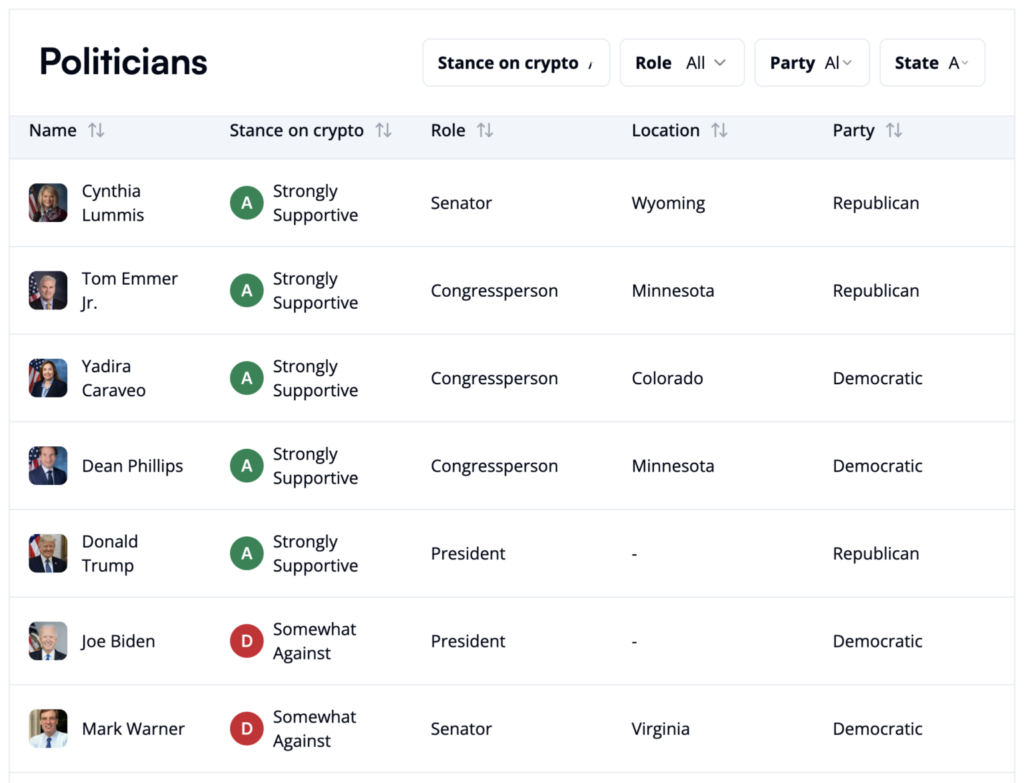The election is close, and some crypto pacs are focused on the race between Republican Senator Ted Cruz and Democratic challenger Colin Allred.
Crypto-focused political action committees are increasingly focusing their efforts on Texas as election day in the US nears and the re-election bid of Republican Senator Ted Cruz heats up against Democratic challenger Colin Allred. Early voting commenced on October 21, and crypto interest PACs have become quite active in support of Cruz’s campaign for the seat in the Senate.
Recent FEC filings show that the Bitcoin Voter PAC has already spent almost $30,000 on digital ads for Cruz as of October 24. The Bitcoin Voter Project, which is headed by several executives from the crypto mining industry, backs the PAC in an effort to rally support across the state for pro-crypto candidates. The Bitcoin Voter PAC, which has raised $65,000 so far, has been very vocal in pushing candidates like Cruz who champion Bitcoin and blockchain technology.
Beyond Texas, the PAC has also thrown support behind Republican presidential candidate Donald Trump and Pennsylvania Senate hopeful Dave McCormick, demonstrating a broader commitment to promoting crypto-friendly leadership at various levels of government. The Texas race remains closely contested, with recent polling showing Cruz and Allred virtually tied.
Cruz has been very vocal in his crypto industry support, speaking at conferences and calling on lenient regulations around Texas Bitcoin mining.
Source: X
He looks at blockchain technology as a tool to create economic growth and a job creator, hedging inflation. On the other hand, his opponent, Allred, is a representative of Texas’ 32nd Congressional District and has taken quite a conservative approach toward cryptocurrency. While he supported the Financial Innovation and Technology for the 21st Century Act, he has raised concerns about crypto’s potential role in illicit financing. However, he hasn’t taken an outright anti-crypto stance, distinguishing himself from Cruz, whose strong support has gained favor among digital asset advocates.
Bitcoin Freedom PAC Adds Financial Support for Cruz
In a show of financial backing, the Bitcoin Freedom PAC, another pro-industry committee, contributed $350,000 to the Truth and Courage PAC, which directly supports Cruz’s reelection efforts. Prominent crypto figures such as Coinbase CEO Brian Armstrong and Gemini founders Cameron and Tyler Winklevoss have also donated the maximum individual amount of $3,300 to Cruz’s campaign. Meanwhile, Ripple co-founder Chris Larsen, a supporter of Democratic candidate Kamala Harris, contributed to Allred’s campaign, highlighting the crypto community’s divided interests.
Crypto-aligned PACs are also heavily funding other races across the country. For example, Defend American Jobs and Protect Progress, affiliates of Fairshake, have committed millions to support or oppose candidates nationwide. In Texas, Democratic candidate Julie Johnson, running for Allred’s congressional seat, has received considerable support from these PACs, while the Commonwealth United Fund backs Republican John Deaton’s campaign against Senator Elizabeth Warren in Massachusetts.
The significance of Texas in this election was underscored on October 25 as both Vice President Kamala Harris and former President Donald Trump held campaign events in the state. Harris’s Houston rally featured major figures like Beyoncé and Willie Nelson. Meantime, Trump’s appearance on Joe Rogan’s podcast in Austin attracted further attention, underscoring the high stakes and the crucial role Texas may play in this election.
Stand With Crypto
Crypto lobbying has shifted gears, moving beyond simple financial contributions to galvanize public support with campaigns like Coinbase’s Stand With Crypto. These efforts, which include community events like watch parties, aim to engage crypto enthusiasts in discussions on policy and politics. But grassroots mobilization is a challenge. Many crypto advocates are drawn to decentralization precisely to escape the clutches of traditional politics, leaving them ambivalent—or outright reluctant—about participating in political campaigns.

Stand With Crypto

Stand With Crypto
Source: Stand With Crypto
Some lobbying approaches, especially by pro-crypto PACs, have sparked controversy. Fairshake, a PAC with a pro-crypto agenda, spent $10 million on attack ads targeting California Representative Katie Porter, despite her moderate stance on crypto. Moves like this have raised eyebrows among both politicians and the public, sparking questions about whether some crypto insiders are more focused on consolidating influence than genuinely advancing crypto-friendly legislation.
A significant obstacle remains in getting comprehensive crypto legislation through Congress. While the FIT21 bill has managed to gather bipartisan support in the House, it faces a tougher road in the Senate. Key figures like Nancy Pelosi have shown muted support, but skepticism lingers, especially among Senate Democrats like Sherrod Brown, who remain cautious about crypto’s track record.
Even with record-breaking political donations, the effectiveness of crypto lobbying is still up for debate. The SEC remains a substantial regulatory hurdle, and the lack of consensus among crypto stakeholders and their political allies muddles the lobbying landscape. Although a high-profile endorsement—like one from Trump—could theoretically bolster crypto’s political credibility, there’s a risk that high spending could lead to more regulatory scrutiny and even legislative standoffs, slowing crypto’s advance.
As the 2024 U.S. presidential election approaches, the crypto industry isn’t banking on any specific candidate to carry the torch. Instead, analysts are forecasting a post-election boost for crypto markets, expecting a rise in liquidity and a return of institutional investors. Regardless of who wins—whether it’s Trump or Harris—the industry’s focus is firmly on long-term market trends rather than fleeting political gains.

